|
Books Should Be Free Loyal Books Free Public Domain Audiobooks & eBook Downloads |
|
|
Books Should Be Free Loyal Books Free Public Domain Audiobooks & eBook Downloads |
|
Non-fiction |
|---|
|
Book type:
Sort by:
View by:
|
By: W. G. Waters | |
|---|---|
 The Cook's Decameron: a study in taste, containing over two hundred recipes for Italian dishes
The Cook's Decameron: a study in taste, containing over two hundred recipes for Italian dishes
| |
By: W. H. (William Herbert) Simmons | |
|---|---|
 The Handbook of Soap Manufacture
The Handbook of Soap Manufacture
| |
By: W. H. R. (William Henry Ricketts) Curtler (1862-1925) | |
|---|---|
 A Short History of English Agriculture
A Short History of English Agriculture
| |
By: W. Hamilton Gibson (1850-1896) | |
|---|---|
 Camp Life in the Woods and the Tricks of Trapping and Trap Making
Camp Life in the Woods and the Tricks of Trapping and Trap Making
| |
By: W. J. Atkinson (William John Atkinson) Butterfield | |
|---|---|
 Acetylene, the Principles of Its Generation and Use A Practical Handbook on the Production, Purification, and Subsequent Treatment of Acetylene for the Development of Light, Heat, and Power
Acetylene, the Principles of Its Generation and Use A Practical Handbook on the Production, Purification, and Subsequent Treatment of Acetylene for the Development of Light, Heat, and Power
| |
By: W. J. Connor | |
|---|---|
 The Stoker's Catechism
The Stoker's Catechism
| |
By: W. K. Tweedie (1803-1863) | |
|---|---|
 Joseph and his Brethren
Joseph and his Brethren
"The story of Joseph is at once so simple that childhood is arrested and rivetted by it, and so profound that sages may deepen their wisdom by meditating on the truths which it embodies. An attempt is here made to point out some of the more important lessons which the narrative teaches,—to manifest the wisdom and the watchfulness of Providence,—and show how God on high exercises his prerogative of educing good from what we are often tempted to regard as only and hopelessly evil. While man displays... | |
By: W. L. Hunter | |
|---|---|
 Jesus Christ Had Negro Blood in His Veins
Jesus Christ Had Negro Blood in His Veins
This short work attempts to establish that Jesus had black ancestry dating back to Ham, the son of Noah, who had been made black-skinned as a punishment for having seen his father naked. Furthermore, Canaanites are here also identified as being black, and according to the author, several important Jewish figures and ancestors of Jesus had children by this group of people. - Summary by Jim Locke | |
By: W. Max Reid (1839-1911) | |
|---|---|
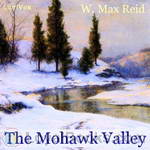 The Mohawk Valley
The Mohawk Valley
An in-depth view and early history of the Mohawk Valley in upper New York state, covering the time period of 1609-1780. This historical piece covers that part of the Mohawk Valley between Schenectady and Rome, NY.The narrator hopes that the listener understands that a best effort has been made in pronunciation of many names within this work; particularly those of the Mohawks, Iriquois, Huron, and Mohicans; as well as the French and Dutch. | |
By: W. N. P. Barbellion (1889-1919) | |
|---|---|
 Journal of a Disappointed Man
Journal of a Disappointed Man
The journal of British naturalist Bruce Frederick Cummings, spanning from his early childhood through to his early death from complications stemming from multiple sclerosis. The diary combines beautiful, lyrical passages concerning the natural world with more introspective ruminations reminiscent of Kafka. Although successful and scandalous upon their publication in 1919, interest in the diaries has faded along with public interest in naturalism and diary writing more generally. However, Cummings' work is very modern is its forthright confessional tone and contains some deeply moving pieces of writing not easily forgotten. - Summary by Adam Whybray | |
By: W. O. E. Oesterley (1866-1950) | |
|---|---|
 Immortality and the Unseen World
Immortality and the Unseen World
The full title of this book is Immortality and the Unseen World - A Study in Old Testament Religion. Oesterley describes the beliefs that pre-Christian Hebrews and Semites held regarding the afterlife and the immortal nature of humans. The nature, form and evolution of these beliefs are derived from the Tanakh (Old Testament), comparisons with the beliefs and mythologies of neighboring cultures, and archeological finds. To develop a full study, additional beliefs of these people are also considered, including the beliefs of the constituent parts of humans; demonology, angelology, shades and the Satan; the home of the dead, ancestor worship, necromancy, and burial customs... | |
By: W. Somerset Maugham (1874-1965) | |
|---|---|
 On a Chinese Screen
On a Chinese Screen
This is a non-fiction collection of Maugham's observations of life in Asia in the early 20th Century. | |
By: W. W. (William Warner) Tracy (1845-1922) | |
|---|---|
 Tomato Culture: A Practical Treatise on the Tomato
Tomato Culture: A Practical Treatise on the Tomato
| |
By: W.G. Aitchison Robertson (d. 1946) | |
|---|---|
 Aids to Forensic Medicine and Toxicology
Aids to Forensic Medicine and Toxicology
A 1922 source-book for British criminal pathologists, this will be of particular interest to fans of popular police forensics television shows, films, and murder mysteries. | |
By: Wallace D. Wattles (1860-1911) | |
|---|---|
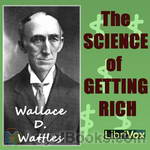 The Science of Getting Rich
The Science of Getting Rich
One of the first self help books to hit the stands in 1910, The Science of Getting Rich by Wallace D Wattles was path breaking in its approach to the acquisition of wealth as a science. It went on to inspire a whole genre of “how to” books that generations of readers found informative, practical and useful in their every day lives. Its original title was The Science of Getting Rich or Financial Success through Creative Thought and in this volume, the author puts down in clear and concise language the step-by-step approach to wealth... | |
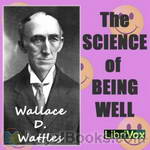 The Science of Being Well
The Science of Being Well
If you are seeking better health and ways to stay well…This book is for you! Wallace D. Wattles was an American author and a pioneer success new thought movement writer. His most famous work and first book is a book called The Science of Getting Rich in which he explains how to get rich. Additionally, In the Science of Getting Well, Wattles suggests the reader to think and ACT in a Certain Way. As with his first book, Wattles explains in simple concepts the keys to Getting Well. With faith and discipline, Wattles suggests you can stay well... | |
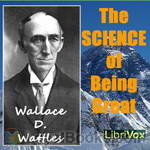 The Science of Being Great
The Science of Being Great
The Science of Being Great is the second book of Wattles' triology. In this volume he argues that the power of thought and positive self-esteem is the only true measure of a person's greatness. | |
By: Walt Whitman (1819-1892) | |
|---|---|
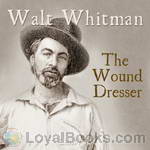 The Wound Dresser
The Wound Dresser
The Wound Dresser is a series of letters written from the hospitals in Washington by Walt Whitman during the War of the Rebellion to The New York Times, the Brooklyn Eagle and his mother, edited by Richard Maurice Burke, M.D., one of Whitman's literary executors. | |
By: Walter A. Wyckoff (1865-1908) | |
|---|---|
 Workers - An Experiment in Reality: The East
Workers - An Experiment in Reality: The East
A young scholar, recently graduated from Princeton College, travels across the United States as a member of the working class, taking any job he could find, enduring hardships and struggling to make a living. He travelled mainly on foot, designing for himself a social experiment on experiencing different class and culture structures and the reality of working conditions at the end of the 19th century. This volume covers the Eastern part of the United States. - Summary by Phyllis Vincelli The second volume The Workers - An Experiment in Reality - the West covers the Western part of the United States. | |
By: Walter Alden Dyer (1878-1943) | |
|---|---|
 Pierrot, Dog Of Belgium
Pierrot, Dog Of Belgium
This 1915 novella was published as the First World War raged. "Belgium lies bleeding. Across her level, lush meadows the harsh-shod hosts of war have marched. Beside her peaceful waters the sons of God have spilled each other’s blood. Beneath her noble trees have raged the fires of human hate. Her king and his brave warriors have fought to save that which was their own and, driven back, have left their smiling land to suffer the desolation which has ever been the conqueror’s boast. Her ancient cities smoke... | |
By: Walter Besant (1836-1901) | |
|---|---|
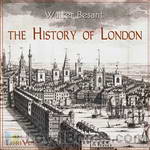 The History of London
The History of London
Walter Besant was a novelist and historian, and his topographical and historical writings, ranging from prehistoric times to the nineteenth century, were probably best known through the detailed 10-volume Survey of London published after his death. This earlier single volume covers, in less depth, the whole period from prehistory until the 19th century. The book appears originally to have been written for boys, and, indeed, the chapters are called “Lessons”. However, it is a very readable history and provides a fascinating insight into both London’s past and the government of the City at the time the book was written (1894). | |
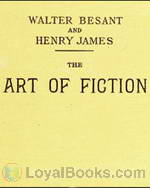 The Art of Fiction
The Art of Fiction
A lecture on the art of fiction, given by the English critic Walter Besant on April 25, 1884, and an answer to the lecture by American writer Henry James in the same year. | |
By: Walter Bigges (-1586) | |
|---|---|
 Drake's Great Armada
Drake's Great Armada
| |
By: Walter C. Runciman | |
|---|---|
 Gas and Oil Engines, Simply Explained An Elementary Instruction Book for Amateurs and Engine Attendants
Gas and Oil Engines, Simply Explained An Elementary Instruction Book for Amateurs and Engine Attendants
| |
By: Walter Ferdinando Grew (1869-1949?) | |
|---|---|
 Cycle Industry, its origin, history and latest developments
Cycle Industry, its origin, history and latest developments
From the velocipede to the motor cycle in twenty chapters. A short history of the British bicycle industry from its origins in a Coventry sewing machine factory in 1868 to its transformation into one of the countries most important industries. A reminder of the days when bicycles ruled the roads from the Pitman's Common Commodities and Industry Series. | |
By: Walter Fox [Compiler] Allen | |
|---|---|
 English Walnuts What You Need to Know about Planting, Cultivating and Harvesting This Most Delicious of Nuts
English Walnuts What You Need to Know about Planting, Cultivating and Harvesting This Most Delicious of Nuts
| |
By: Walter Geer (1857-1937) | |
|---|---|
 Napoleon and Josephine 'The Rise of the Empire'
Napoleon and Josephine 'The Rise of the Empire'
FOREWORD: "In the popular estimation the Empress Josephine is crowned with a halo of goodness which makes the task of her biographer one of peculiar difficulty. The aversion which many feel towards Napoleon is not a little due to what they conceive to be the cruelty with which he treated the woman who for fourteen years was the companion of his glory. The writer of this book holds no brief either for the prosecution or the defence. He wants to draw a portrait - not to pronounce a judgment: his object is to depict Josephine as she was, and he leaves the reader to decide as to her goodness." Walter Geer | |
By: Walter George Bell (1867-1942) | |
|---|---|
 Unknown London (version 2)
Unknown London (version 2)
For anyone interested in history or who think they know London, Eighteen London secrets will be explored in detail. | |
By: Walter Higgins | |
|---|---|
 Father Thames
Father Thames
Originally published in 1922, this work details the history and importance of one of Great Britain's grandest rivers, the River Thames. It includes information on the river's geography and its role in the founding of London. This is a fascinating read for anyone with an interest in the history of the river. The River Thames takes its name from the Middle English Temese, which is derived from the Celtic name for river. Originating at the Thames Head in Gloucestershire, it is the longest river in England, flowing a total length of 236 miles, out through the Thames Estuary and in to the North Sea... | |
By: Walter Libby (1867-1955?) | |
|---|---|
 Introduction to the History of Science
Introduction to the History of Science
A highly accessible introductory history of the development of scientific thought, method, and application from the first practical concepts of time and space to the development of the first successful heavier-than-air flying machine and the discovery of radioactivity . - Summary by Steven Seitel | |
By: Walter Pater | |
|---|---|
 Appreciations, with an Essay on Style
Appreciations, with an Essay on Style
Appreciations, with an Essay on Style, is a collection of Walter Pater's previously-published essays on literature. The collection was well received by public and critic since its first edition, in 1889. The volume includes an appraisal of the poems of Dante Gabriel Rossetti, first printed in 1883, a few months after Rossetti's death; an essay on Thomas Browne, whose Baroque style Pater admired; and a discussion of Measure for Measure, one of Pater's most often reprinted pieces. The second edition, published in 1890, had a few modifications, and is the basis for all other editions of the book. | |
By: Walter Scott (1771-1832) | |
|---|---|
 Trial of Duncan Terig, alias Clerk, and Alexander Bane Macdonald for the Murder of Arthur Davis, Sergeant in General Guise's Regiment of Foot
Trial of Duncan Terig, alias Clerk, and Alexander Bane Macdonald for the Murder of Arthur Davis, Sergeant in General Guise's Regiment of Foot
| |
By: Walter W. Bryant (1865-1923) | |
|---|---|
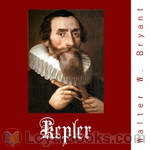 Kepler
Kepler
This biography of Johannes Kepler begins with an account of what the world of astronomy was like before his time, then proceeds to a look at his early years. Two chapters deal with his working relationship with Tycho Brahe. These are followed by a look at Kepler's laws and his last years. | |
By: Walter Wood (1866-?) | |
|---|---|
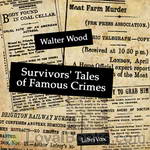 Survivors' Tales of Famous Crimes
Survivors' Tales of Famous Crimes
In this anthology of true crime tales, editor Walter Wood interviews those who were touched by the crimes recounted, sometimes as an acquaintance of the deceased or criminal or in the course of their professional duties. This work provides a personal look at some of the most sensational crimes and scandals of late 19th and early 20th century Britain. | |
By: Ward Muir (1878-1927) | |
|---|---|
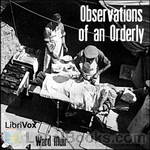 Observations of an Orderly
Observations of an Orderly
Ward Muir brings us into the heart of an English war hospital, describing scenes of cleanliness, triumph, order and sadness. Through the eyes of the orderly we get to see the processes that kept the wards running, and relive some tales from within the hospital walls. | |
By: Warren Hilton (1874-?) | |
|---|---|
 Initiative Psychic Energy
Initiative Psychic Energy
Learn how to accomplish your goals through increasing your mental power, avoiding energy drains, and becoming more mentally efficient. | |
By: Washington Irving (1783-1859) | |
|---|---|
 The Alhambra: A Series of Tales and Sketches of the Moors and Spaniards
The Alhambra: A Series of Tales and Sketches of the Moors and Spaniards
This is a collection of essays, verbal sketches, and stories by Washington Irving. Irving lived at the Alhambra Palace while writing some of the material for his book. In 1828, Washington Irving traveled from Madrid, where he had been staying, to Granada, Spain. At first sight, he described it as "a most picturesque and beautiful city, situated in one of the loveliest landscapes that I have ever seen." He immediately asked the then-governor of the historic Alhambra Palace as well as the archbishop of Granada for access to the palace, which was granted because of Irving's celebrity status... | |
By: Watkin Tench (1758-1833) | |
|---|---|
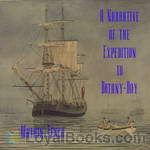 A Narrative of the Expedition to Botany-Bay
A Narrative of the Expedition to Botany-Bay
Watkin Tench was an officer of the British Marines in the First Fleet to settle NSW. This is an interesting and entertaining account of his experiences during that time (Introduction by Tabithat) | |
By: Watson Smith (1845-1920) | |
|---|---|
 The Chemistry of Hat Manufacturing Lectures Delivered Before the Hat Manufacturers' Association
The Chemistry of Hat Manufacturing Lectures Delivered Before the Hat Manufacturers' Association
| |
By: Westminster Assembly | |
|---|---|
 Westminster Larger Catechism
Westminster Larger Catechism
The Westminster Larger Catechism, along with the Westminster Shorter Catechism, is a central catechism of Calvinists in the English tradition throughout the world. The Westminster Shorter Catechism was to be "easier to read and concise for beginners" and the Larger Catechism was to be "more exact and comprehensive". The Catechism was completed by the Westminster Assembly in 1647. It was then adopted by the General Assembly of the Church of Scotland in 1648 and (with modifications relating to the civil magistrate) by the Presbyterian Synod of New York and Philadelphia in 1788. | |
By: Westminster Divines (1646) | |
|---|---|
 The Westminster Confession of Faith
The Westminster Confession of Faith
The Westminster Confession of Faith is a Reformed confession of faith, in the Calvinist theological tradition. Although drawn up by the 1646 Westminster Assembly, largely of the Church of England, it became and remains the 'subordinate standard' of doctrine in the Church of Scotland, and has been influential within Presbyterian churches worldwide. | |
By: Wilfred Byron Shaw (1881-1959) | |
|---|---|
 The University of Michigan
The University of Michigan
| |
By: Wilkie Collins (1824-1889) | |
|---|---|
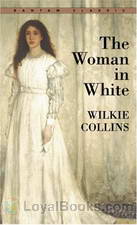 The Woman in White
The Woman in White
Wilkie Collins’s The Woman in White tells the story of two half-sisters, Laura Fairlie and Marian Halcombe who were embroiled in the sinister plot of Sir Percival Glyde and Count Fosco to take over their family’s wealth. It’s considered to be one of the first “sensation novels” to be published. Like most novels that fall into this category, the protagonists here are pushed to their limits by the villains before they finally got the justice they deserved. The story begins with Walter Hartright helping a woman dressed in white who turned out to have escaped from a mental asylum... | |
By: Willa Sibert Cather (1873-1947) | |
|---|---|
 Collection Of Stories, Reviews And Essays
Collection Of Stories, Reviews And Essays
Stories and essays by Willa Cather | |
By: William A. Alcott (1798-1859) | |
|---|---|
 Vegetable Diet: As Sanctioned by Medical Men
Vegetable Diet: As Sanctioned by Medical Men
| |
By: William Alexander MacKay (1842-1905) | |
|---|---|
 Zorra Boys at Home and Abroad, or, How to Succeed
Zorra Boys at Home and Abroad, or, How to Succeed
By Zorra, in the following sketches, is meant a little district in Oxford county, Ontario, some ten miles square, composed of part of East and part of West Zorra, and containing a population of about fourteen hundred. It was settled about the year 1830, chiefly by Highlanders from Sutherlandshire, Scotland.Within the last forty years there have gone from this district over one hundred young men who have made their mark in the world. With most of these it has been the writer's good fortune to be personally and intimately acquainted; and companionship with some of them has been to him a pleasure and a benefit... | |
By: William Augustus Munn | |
|---|---|
 A Description of the Bar-and-Frame-Hive With an Abstract of Wildman's Complete Guide for the Management of Bees Throughout the Year
A Description of the Bar-and-Frame-Hive With an Abstract of Wildman's Complete Guide for the Management of Bees Throughout the Year
| |
By: William Beatty, M.D. (1773-1842) | |
|---|---|
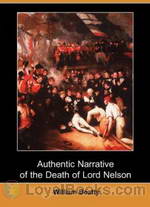 The Death of Lord Nelson
The Death of Lord Nelson
“The Surgeon of the late illustrious Lord NELSON feels himself called upon, from the responsible situation which he held on the eventful day of the 21st of October 1805, to lay before the British Nation the following Narrative. It contains an account of the most interesting incidents which occurred on board the Victory. (Lord NELSON’s flag-ship) from the time of her sailing from England, in the month of September, till the day of battle inclusively”. – William Beatty | |
By: William Bernard Ullathorne (1806-1889) | |
|---|---|
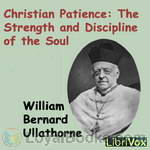 Christian Patience: The Strength and Discipline of the Soul
Christian Patience: The Strength and Discipline of the Soul
William Bernard Ullathorne was a Benedictine monk and Roman Catholic priest who ministered in Australia from 1833 until 1840 and then returned to his native England, where he was ordained a bishop in 1847 and served as Bishop of Birmingham from 1850 until 1888. He is best known for his catechetical trilogy: The Endowments of Man, The Groundwork of the Christian Virtues, and Christian Patience, published in the 1880s. Christian Patience is presented in twelve lectures. Bishop Ullathorne teaches that Christian patience is both a special virtue and a universal virtue... | |
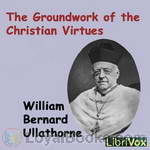 The Groundwork of the Christian Virtues
The Groundwork of the Christian Virtues
William Bernard Ullathorne was a Benedictine monk and Roman Catholic priest who ministered in Australia from 1833 until 1840 and then returned to his native England, where he was ordained a bishop in 1847 and served as Bishop of Birmingham from 1850 until 1888. He is best known for his catechetical trilogy: The Endowments of Man, The Groundwork of the Christian Virtues, and Christian Patience, published in the 1880s. The Groundwork of the Christian Virtues is presented in sixteen lectures, wherein Bishop Ullathorne makes the case that the virtue of humility is the foundation of all virtues, especially of the three theological virtues and the four cardinal moral virtues... | |
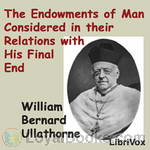 The Endowments of Man Considered in Their Relations with His Final End
The Endowments of Man Considered in Their Relations with His Final End
William Bernard Ullathorne was a Benedictine monk and Roman Catholic priest who ministered in Australia from 1833 until 1840 and then returned to his native England, where he was ordained a bishop in 1847 and served as Roman Catholic Bishop of Birmingham from 1850 until 1888. He is best known for his catechetical trilogy: The Endowments of Man, The Groundwork of the Christian Virtues, and Christian Patience, published in the 1880s. The Endowments of Man is presented in fourteen lectures, adapted from lectures originally delivered to clerics in Olton, England, at St... | |
By: William Blackstone | |
|---|---|
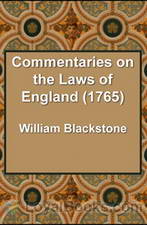 Commentaries on the Laws of England (1765)
Commentaries on the Laws of England (1765)
The Commentaries on the Laws of England are an influential 18th century treatise on the common law of England by Sir William Blackstone, originally published by the Clarendon Press at Oxford, 1765-1769.The Commentaries were long regarded as the leading work on the development of English law and played a role in the development of the American legal system. They were in fact the first methodical treatise on the common law suitable for a lay readership since at least the Middle Ages. The common law of England has relied on precedent more than statute and codifications and has been far less amenable than the civil law, developed from the Roman law, to the needs of a treatise... | |
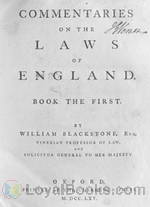 Commentaries on the Laws of England Book the First
Commentaries on the Laws of England Book the First
| |
By: William Blake (1757-1827) | |
|---|---|
 Marriage of Heaven and Hell
Marriage of Heaven and Hell
The work was composed between 1790 and 1793, in the period of radical foment and political conflict immediately after the French Revolution. The title is an ironic reference to Emanuel Swedenborg's theological work Heaven and Hell published in Latin 33 years earlier. Swedenborg is directly cited and criticized by Blake several places in the Marriage. Though Blake was influenced by his grand and mystical cosmic conception, Swedenborg's conventional moral structures and his Manichean view of good... | |
By: William Bligh (1754-1817) | |
|---|---|
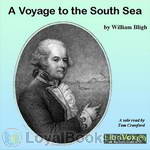 A Voyage to the South Sea
A Voyage to the South Sea
A Voyage to the South Sea, undertaken by command of His Majesty, for the purpose of conveying the Bread-fruit tree to the West Indies, in His Majesty’s ship The Bounty, commanded by Lieutenant William Bligh. Including an account of the Mutiny on board the said ship, and the subsequent voyage of part of the crew, in the ship’s boat, from Tofoa, one of the Friendly Islands, to Timor, a Dutch settlement in the East Indies. | |
By: William Bodham Donne (1807-1882) | |
|---|---|
 Old Roads and New Roads
Old Roads and New Roads
| |
By: William Bradford (1590-1657) | |
|---|---|
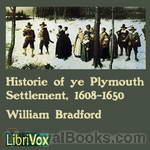 Bradford's History of the Plymouth Settlement
Bradford's History of the Plymouth Settlement
The journal of William Bradford, who served five terms as governor of the Plymouth colony, is an indispensable document of the events of early American history. His eyewitness account includes the stories of the Pilgrims’ sojourn in the Netherlands, the voyage of the Mayflower, the hardships of the New World, relations with the Indians, and the colony’s growth from an endangered enterprise to a thriving city. This edition of Bradford’s Of Plimoth Plantation presents the text in language made more accessible to the modern reader | |
By: William Brodie Gurney (1777-1855) | |
|---|---|
 The Trial of Charles Random de Berenger, Sir Thomas Cochrane,commonly called Lord Cochrane
The Trial of Charles Random de Berenger, Sir Thomas Cochrane,commonly called Lord Cochrane
| |
By: William Brooke O'Shaughnessy (1809-1889) | |
|---|---|
 On the Preparations of the Indian Hemp
On the Preparations of the Indian Hemp
The author investigated the uses of cannabis resin as an anticonvulsant and relaxant in cases of tetanus, cholera, and infantile convulsions. He and others also carried out animal studies on its use, and noted its low toxicity. He recommended that British doctors assessed the drug's use in such cases. | |
By: William C. (William Chandler) Bagley (1874-1946) | |
|---|---|
 Craftsmanship in Teaching
Craftsmanship in Teaching
| |
By: William C. Hunter | |
|---|---|
 Pep: Poise, Efficiency, Peace
Pep: Poise, Efficiency, Peace
Colonel William Crosbie Hunter was a businessman and self-help writer who was moderately popular in the early 20th century. His books set forth his personal philosophy on health, happiness, human relations, and success in the business world. Pep, billed as "A book of how's not why's for physical and mental efficiency," was published in 1914 and went through several editions. (Introduction by Pleonic) | |
By: William Carew Hazlitt (1834-1913) | |
|---|---|
 Old Cookery Books and Ancient Cuisine
Old Cookery Books and Ancient Cuisine
| |
By: William Charles Henry Wood (1864-1947) | |
|---|---|
 Draft of a Plan for Beginning Animal Sanctuaries in Labrador
Draft of a Plan for Beginning Animal Sanctuaries in Labrador
| |
By: William Cobbett (1763-1835) | |
|---|---|
 Cottage Economy
Cottage Economy
How can you tell when your pig is fat enough? Why should you never buy mustard? What's wrong with eating potatoes? Which is better, beer or tea? And what type of straw makes the best bonnets? William Cobbett is the man to ask. Here is his book of practical advice to the rural labouring 'cottager' (first published as a part-work in 1821-22), the precursor in many ways to the handbooks on self-sufficiency that today entice so many city-dwellers. A champion of the rural working class at a time of huge... | |
By: William Cooper | |
|---|---|
 A Sketch of the Life of the late Henry Cooper Barrister-at-Law, of the Norfolk Circuit; as also, of his Father
A Sketch of the Life of the late Henry Cooper Barrister-at-Law, of the Norfolk Circuit; as also, of his Father
| |
By: William Cooper Howells | |
|---|---|
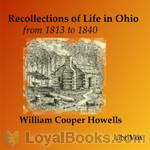 Recollections of Life in Ohio, from 1813 to 1840
Recollections of Life in Ohio, from 1813 to 1840
Recollections of Life in Ohio is the autobiography of William Cooper Howells (1807-1894), father of the American novelist William Dean Howells. The Howells were Welsh woolen mill owners. William Cooper's father brought the family to America in 1808--at a time when Great Britain actually forbid skilled workmen from emigrating, thus putting the father's practical knowledge of mill machinery in great demand. Small scale industries--paper and woolen mills, flour mills, and distilleries were sprouting apace with farms in the newly opened lands of Ohio, where the Howells settled in 1813... | |
By: William D. Granger | |
|---|---|
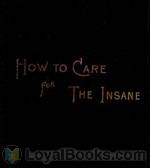 How to Care for the Insane
How to Care for the Insane
"The writer believes that all attendants should be regularly instructed in their duties, and the highest standard of care can be reached only when this is done. He also believes that every person who is allowed to care for the insane will be greatly benefited by such instruction, and will be able to learn every thing taught, if the teacher uses simple methods and is patient to instruct."As this manual was originally written in 1886, the basic medical instruction IS out-of-date and should not be used to diagnose any medical problem, nor should be used in the case of an emergency. It has been recorded for entertainment purposes only! | |
By: William Dean Howells (1837-1920) | |
|---|---|
 My Mark Twain
My Mark Twain
William Dean Howells (1837-1920) became fast friends with Mark Twain from the moment in 1869 when Twain strode into the office of The Atlantic Monthly in Boston to thank Howells, then its assistant editor, for his favorable review of Innocents Abroad. When Howells became editor a few years later, The Atlantic Monthly began serializing many of Twain’s works, among them his non-fiction masterpiece, Life on the Mississippi. In My Mark Twain, Howells pens a literary memoir that includes such fascinating scenes as their meetings with former president Ulysses Grant who was then writing the classic autobiography that Twain would underwrite in the largest publishing deal until that time... | |
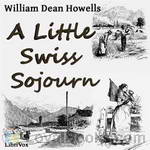 A Little Swiss Sojurn
A Little Swiss Sojurn
A charming brief account of a two months' autumnal stay on the shores of the Lake of Geneva. Howells, who was there with his family traveling from England to Italy, has a sharp eye not only for scenery and architecture, but for people and customs, both Swiss and foreign. | |
By: William E. B. Du Bois (1868-1963) | |
|---|---|
 The Souls of Black Folk
The Souls of Black Folk
“Few books make history and fewer still become the foundational texts for the movements and struggles of an entire people....” One such great work was The Souls of Black Folk by William EB Du Bois. Published in 1903, it is a powerful and hard-hitting view of sociology, race and American history. It became the cornerstone of the civil rights movement and when Du Bois attended the first National Negro Conference in 1909, he was already well-known as a proponent of full and unconditional equality for African Americans... | |
By: William F. Cody | |
|---|---|
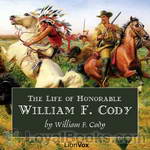 The Life of Honorable William F. Cody
The Life of Honorable William F. Cody
The life and adventures of Honorable William F. Cody–Buffalo Bill–as told by himself, make up a narrative which reads more like romance than reality, and which in many respects will prove a valuable contribution to the records of our Western frontier history. While no literary excellence is claimed for the narrative, it has the greater merit of being truthful, and is verified in such a manner that no one can doubt its veracity. The frequent reference to such military men as Generals Sheridan, Carr, Merritt, Crook, Terry, Colonel Royal, and other officers under whom Mr... | |
By: William F. Cody, Col. (1846-1917) | |
|---|---|
 The Adventures of Buffalo Bill
The Adventures of Buffalo Bill
MANUAL OF SURGERY, OXFORD MEDICAL PUBLICATIONSBY ALEXIS THOMSON, F.R.C.S.Ed.PREFACE TO SIXTH EDITION Much has happened since this Manual was last revised, and many surgical lessons have been learned in the hard school of war. Some may yet have to be unlearned, and others have but little bearing on the problems presented to the civilian surgeon. Save in its broadest principles, the surgery of warfare is a thing apart from the general surgery of civil life, and the exhaustive literature now available on every aspect of it makes it unnecessary that it should receive detailed consideration in a manual for students... | |
By: William Falconer | |
|---|---|
 Mushrooms: how to grow them a practical treatise on mushroom culture for profit and pleasure
Mushrooms: how to grow them a practical treatise on mushroom culture for profit and pleasure
| |
By: William George Jordan (1864-1928) | |
|---|---|
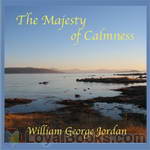 The Majesty of Calmness
The Majesty of Calmness
Change your life by changing your thoughts. The Majesty of Calmness is your guide to attracting prosperity, manifesting opportunities, and managing stress–all while discovering the values most precious to you. | |
By: William Graham Sumner (1840-1910) | |
|---|---|
 Forgotten Man and Other Essays
Forgotten Man and Other Essays
Sumner's popular essays were to give him a wider audience to distribute his anti-imperialism, his advocacy of free markets and the gold standard. He also had a long term influence over modern American conservatism. This is the final collection of his essays and is edited by Albert Galloway Keller. It concludes with The Forgotten Man where Sumner argued that, in his day, politics was being subverted by those proposing a "measure of relief for the evils which have caught public attention. | |
By: William H. (William Harrison) Ukers (1873-1945) | |
|---|---|
 All About Coffee
All About Coffee
| |
By: William H. (William Henry) Dooley (1880-) | |
|---|---|
 Textiles For Commercial, Industrial, and Domestic Arts Schools; Also Adapted to Those Engaged in Wholesale and Retail Dry Goods, Wool, Cotton, and Dressmaker's Trades
Textiles For Commercial, Industrial, and Domestic Arts Schools; Also Adapted to Those Engaged in Wholesale and Retail Dry Goods, Wool, Cotton, and Dressmaker's Trades
| |
By: William H. Herndon (1818-1891) | |
|---|---|
 Herndon's Lincoln
Herndon's Lincoln
A biography of Abraham Lincoln by his long-time law partner, William Herndon and Herndon's collaborator, Jesse Weik. The book is notable for its extensive use of first hand interviews (unusual for its time) and for Herndon's overriding determination to convey an affectionate but frank picture of his law partner's life story as remembered by Lincoln's family, friends, associates and neighbors. | |
By: William H. Hudson (1841-1922) | |
|---|---|
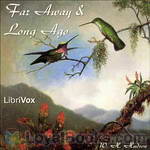 Far Away and Long Ago
Far Away and Long Ago
William Henry Hudson (August 1841 – 1922) was an author, naturalist and ornithologist. Hudson was born of U.S. parents living in the Quilmes Partido in Buenos Aires Province, Argentina, where he spent his youth studying the local flora and fauna and observing both natural and human dramas on what was then a lawless frontier. ‘Far Away and Long Ago’ is a classic memoir of a boy, fascinated by nature, on the Pampas in the 19th century. | |
By: William H. Prescott | |
|---|---|
 History of the Conquest of Mexico by William H Prescott (d. 1859)
History of the Conquest of Mexico by William H Prescott (d. 1859)
Much have I travell’d in the realms of gold,And many goodly states and kingdoms seen;Round many western islands have I beenWhich bards in fealty to Apollo hold.Oft of one wide expanse had I been toldThat deep-brow’d Homer ruled as his demesne;Yet never did I breathe its pure sereneTill I heard Chapman speak out loud and bold.Then felt I like some watcher of the skiesWhen a new planet swims into his ken;Or like stout Cortez, when with eagle eyesHe star’d at the Pacific – and all his menLook’d at each other with a wild surmise -Silent, upon a peak in Darien... | |
By: William Hanford Edwards | |
|---|---|
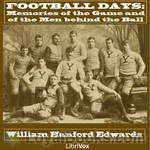 Football Days: Memories of the Game and of the Men behind the Ball
Football Days: Memories of the Game and of the Men behind the Ball
A book reminiscent of the days when football was gaining popularity in America by MHAIJH85 | |
By: William Harmon Norton (1856-1944) | |
|---|---|
 The Elements of Geology
The Elements of Geology
Geology is a science of such rapid growth that no apology is expected when from time to time a new text-book is added to those already in the field. The present work, however, is the outcome of the need of a text-book of very simple outline, in which causes and their consequences should be knit together as closely as possible,—a need long felt by the author in his teaching, and perhaps by other teachers also. The author has ventured, therefore, to depart from the common usage which subdivides... | |
By: William Hazlitt | |
|---|---|
 The Plain Speaker: Opinions on Books, Men, and Things
The Plain Speaker: Opinions on Books, Men, and Things
The Plain Speaker: Opinions on Books, Men, and Things is a posthumous collection of essays by William Hazlitt, organized by his grandson, William Carew Hazlitt. The book contains some of Hazlitt's more famous essays that hadn't been previously published in book format. | |
By: William Healy, Mary Healy | |
|---|---|
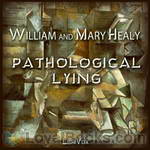 Pathological Lying, Accusation, and Swindling – A Study in Forensic Psychology
Pathological Lying, Accusation, and Swindling – A Study in Forensic Psychology
This work describes and analyzes several cases of pathological behavior. The interest comes not only from the cases themselves, but also from the of-its-time analysis which is mired in what we now know to be wrong thinking about mental illness, sexuality, gender, and race. - written by Mary Schneider | |
By: William Henry Holmes (1846-1933) | |
|---|---|
 A Study Of The Textile Art In Its Relation To The Development Of Form And Ornament
A Study Of The Textile Art In Its Relation To The Development Of Form And Ornament
| |
By: William Henry Pyle (1875-) | |
|---|---|
 The Science of Human Nature A Psychology for Beginners
The Science of Human Nature A Psychology for Beginners
| |
By: William Henry Samuel Jones (1876-1963) | |
|---|---|
 Malaria: A Neglected Factor in the History of Greece and Rome
Malaria: A Neglected Factor in the History of Greece and Rome
This short book has the objective of showing how important it is to stamp out malaria as soon as possible. Unlike a plague that suddenly takes it victims and leaves its survivors, malaria is a debilitating infection. It seizes all, fit and unfit alike, gradually lessening the general vitality until, in some cases, it has exterminated the people among whom it has become endemic. Extensive evidence has been compiled and summarised from consultation with medical authorities, antique literature, and historical sources to show how this insidious disease has undermined the integrity of a pair of ancient empires, and ultimately became a factor in their downfall. - Summary by Leon Harvey | |
 Malaria in Greek History
Malaria in Greek History
This book is an attempt to correct and develop the theory proposed tentatively in the little work Malaria. Put briefly, this theory is as follows. In the struggle for existence man has competed, not only with his fellow-men, but also with wild animals and disease- parasites. The fight against beasts was decided long before the historic period, but parasites have always been, and still are, formidable opponents. Whole tribes have been wiped out by plague, kala-azar and measles; and even when the disease-parasite does not win such a decisive victory, it often weakens a nation so much that the latter falls an easy victim to its healthier neighbours... | |
By: William Hillary (1771-1847) | |
|---|---|
 An Appeal to the British Nation on the Humanity and Policy of Forming a National Institution for the Preservation of Lives and Property from Shipwreck (1825)
An Appeal to the British Nation on the Humanity and Policy of Forming a National Institution for the Preservation of Lives and Property from Shipwreck (1825)
| |
By: William J. Claxton | |
|---|---|
 The Mastery of the Air
The Mastery of the Air
| |
By: William Jackson | |
|---|---|
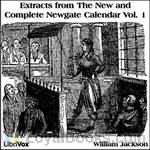 Extracts from The New and Complete Newgate Calendar
Extracts from The New and Complete Newgate Calendar
Volume One of the New and Complete Newgate Calendar, covering the years 1700 through 1723, relates stories of British trials, the persons accused and the crimes committed. It is primarily based upon contemporary newspaper and pamphlet accounts of these trials. Where the criminal is particularly well known, such as the highwayman, burglar and escape artist Jack Sheppard, other sources were used as well. The readings used here are selected to illustrate different aspects of the eighteenth century criminal world and the British legal system. | |
By: William James (1842-1910) | |
|---|---|
 Essays in Radical Empiricism
Essays in Radical Empiricism
William James (1842 – 1910) was a pioneering American psychologist and philosopher. He wrote influential books on the young science of psychology, educational psychology, psychology of religious experience and mysticism, and the philosophies of pragmatism and Radical Empiricism. Essays in Radical Empiricism is a collection edited and published posthumously by his colleague and biographer Ralph Barton Perry in 1912. It was assembled from a collection of reprinted journal articles published from 1904–1905 which James had deposited in August 1906 at Harvard University, for supplemental use by his students. | |
 Varieties of Religious Experience
Varieties of Religious Experience
The Varieties of Religious Experience: A Study in Human Nature is a book by the Harvard psychologist and philosopher William James that comprises his edited Gifford Lectures on "Natural Theology" delivered at the University of Edinburgh in Scotland between 1901 and 1902. These lectures concerned the nature of religion and the neglect of science, in James' view, in the academic study of religion. Soon after its publication, the book found its way into the canon of psychology and philosophy, and has remained in print for over a century. | |
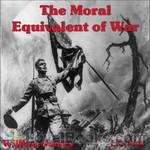 The Moral Equivalent of War
The Moral Equivalent of War
The Moral Equivalent of War, the last public utterance of William James, is significant as expressing the opinions of a practical psychologist on a question of growing popular interest. For the past fifteen years the movement for promoting international peace has been enlisting the support of organizations and individuals the world over. That this is a question on which much may be said for the opposition, James, though a pacificist, admits with his usual fair-mindedness, pointing out that militarism... | |
 Pragmatism
Pragmatism
'Pragmatism' contains a series of public lectures held by William James in Boston 1906–7. James provides a popularizing outline of his view of philosophical pragmatism while making highly rhetorical and entertaining lashes towards rationalism and other competing schools of thought. James is especially concerned with the pragmatic view of truth. True beliefs should be defined as, according to James, beliefs that can successfully assist people in their everday life. This is claimed to not be relativism... | |
By: William Kingdon Clifford | |
|---|---|
 The Ethics of Belief
The Ethics of Belief
This is an essay on decision biases and a critique on prejudices, neatly written and thought provoking. | |
By: William Kitchiner (1775?-1827) | |
|---|---|
 The Cook's Oracle; and Housekeeper's Manual
The Cook's Oracle; and Housekeeper's Manual
| |